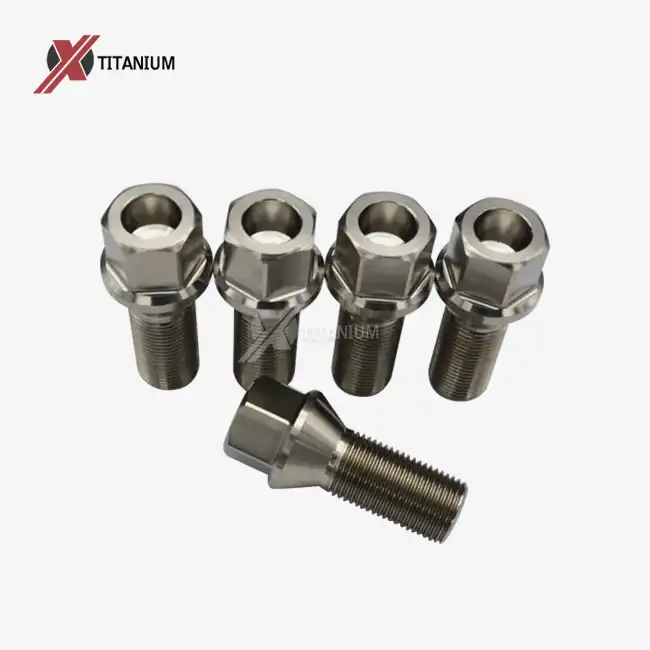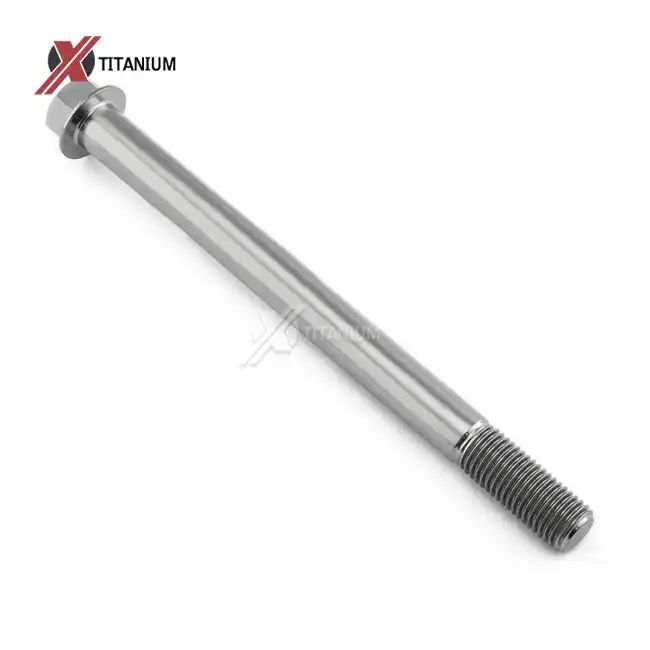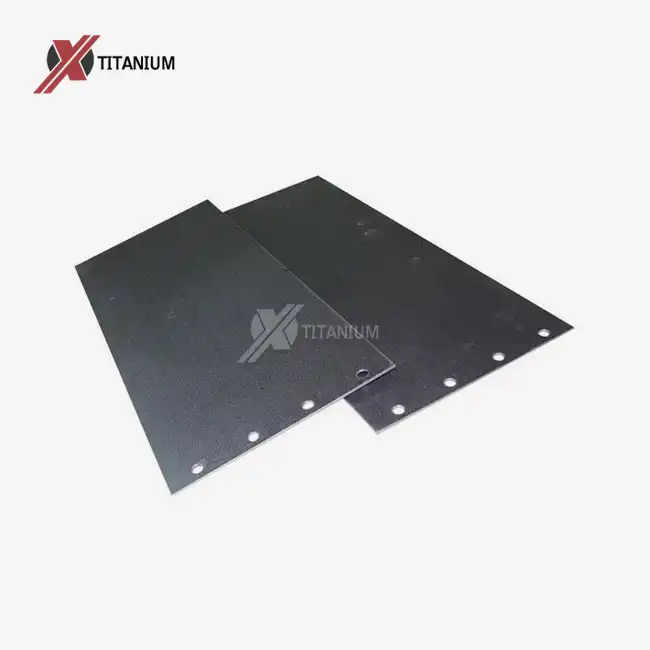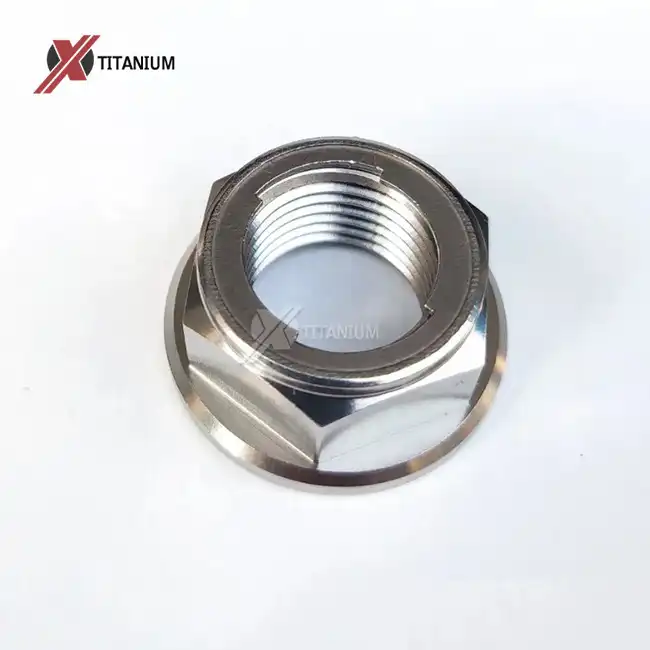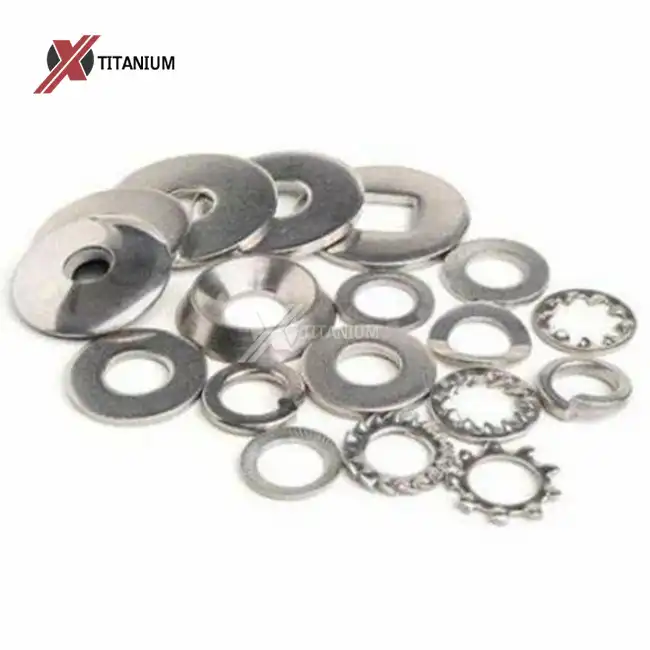The Evolution of Titanium Wheel Bolts in Aerospace
Pioneering Lightweight Solutions
The aerospace industry has long been at the forefront of materials innovation, constantly seeking ways to reduce weight without compromising strength. Titanium wheel bolts emerged as a game-changing solution in this quest. By replacing traditional steel bolts with titanium alternatives, engineers achieved significant weight savings crucial for aircraft performance and fuel efficiency.
In the demanding environment of aerospace applications, titanium wheel bolts proved their mettle. Their exceptional strength-to-weight ratio allowed for robust connections between critical components while contributing to overall weight reduction. This property is particularly valuable in landing gear assemblies, where the bolts must withstand extreme forces during takeoff and landing.
Corrosion Resistance in Harsh Environments
Another key advantage that propelled the adoption of titanium wheel bolts in aerospace was their superior corrosion resistance. Aircraft are exposed to a wide range of environmental conditions, from high-altitude cold to coastal salt spray. Titanium's natural resistance to corrosion ensures that these critical fasteners maintain their integrity over time, reducing maintenance requirements and enhancing safety.
The aerospace industry's rigorous testing and certification processes further refined the production and quality control of titanium wheel bolts. This relentless pursuit of excellence laid the groundwork for their eventual transition into other high-performance applications.
Transitioning to Automotive Excellence
Racing and High-Performance Vehicles
The automotive industry, particularly in racing and high-performance sectors, quickly recognized the potential of titanium wheel bolts. In these applications, every fraction of a second counts, and reducing unsprung weight can significantly impact vehicle dynamics and lap times.
Racing teams began incorporating titanium wheel bolts into their vehicles, reaping the benefits of reduced rotational mass. This change allowed for quicker acceleration, improved handling, and better overall performance. The success in motorsports paved the way for wider adoption in high-end production vehicles.
Luxury and Performance Car Integration
Luxury car manufacturers saw an opportunity to differentiate their products by incorporating aerospace-grade materials. Titanium wheel bolts became a symbol of cutting-edge engineering and attention to detail. Beyond their functional benefits, these bolts offered aesthetic appeal, often featuring anodized finishes in various colors to complement the vehicle's design.
The integration of titanium wheel bolts in production vehicles wasn't just about performance gains. It also spoke to a growing consumer demand for advanced materials and technologies in their automobiles. This trend has continued to expand, with titanium components finding their way into an increasing number of vehicle systems.
Overcoming Challenges in Mass Production
While the benefits of titanium wheel bolts were clear, transitioning from aerospace to automotive applications presented unique challenges. The automotive industry's demand for higher volume production required innovations in manufacturing processes to make titanium bolts more cost-effective.
Advancements in CNC machining and materials science have played a crucial role in overcoming these hurdles. Today, companies like Baoji Chuanglian New Metal Material Co., Ltd. are at the forefront of producing high-quality titanium wheel bolts at scale, meeting the exacting standards of both aerospace and automotive industries.
Innovations and Future Prospects
Advanced Manufacturing Techniques
The production of titanium wheel bolts continues to evolve, with advanced manufacturing techniques pushing the boundaries of what's possible. Precision CNC machining allows for tighter tolerances and more complex designs, enhancing both the performance and aesthetic appeal of these components.
Surface treatment innovations have also expanded the capabilities of titanium wheel bolts. Techniques such as anodizing not only provide corrosion resistance but also allow for customization with various colors, catering to the growing demand for personalization in the automotive market.
Material Advancements
Research into titanium alloys is ongoing, with scientists and engineers working to develop formulations that offer even greater strength, lighter weight, or improved manufacturability. These advancements could further enhance the properties of titanium wheel bolts, making them suitable for an even wider range of applications.
Some promising areas of research include beta titanium alloys, which offer improved formability, and titanium matrix composites, which could provide enhanced strength and stiffness. These developments may lead to the next generation of high-performance fasteners.
Expanding Applications
While aerospace and high-performance automotive sectors remain the primary markets for titanium wheel bolts, their use is expanding into other areas. The marine industry, for example, is increasingly adopting these corrosion-resistant fasteners for use in saltwater environments.
Electric vehicles speak to another wilderness for titanium wheel jolts. As automakers endeavor to expand run and progress productivity, the lightweight properties of titanium components ended up indeed more appealing. The integration of titanium wheel jolts in EV stages might contribute to in general weight decrease methodologies, possibly moving forward vehicle execution and battery extend.
Sustainability Considerations
As the car industry shifts towards more attainable sharpens, the long-term benefits of titanium wheel jars are coming into center. Their strength and resistance to disintegration pitiless they require to be supplanted less as regularly as conceivable, reducing waste over the vehicle's lifetime. Additionally, titanium's recyclability alters with circular economy benchmarks, publicizing potential end-of-life courses of action for these components.
The energy-intensive nature of titanium production remains a challenge from a sustainability perspective. However, ongoing research into more efficient extraction and processing methods could help mitigate this issue, further enhancing the environmental credentials of titanium wheel bolts.
Conclusion
The journey of titanium wheel bolts from aerospace innovation to automotive excellence exemplifies the power of cross-industry technology transfer. These high-performance fasteners have not only improved the capabilities of vehicles across various sectors but have also pushed the boundaries of materials science and manufacturing. As we look to the future, the potential for titanium wheel bolts continues to expand. From enabling lighter, more efficient electric vehicles to enhancing the performance of next-generation aircraft, these components play a crucial role in advancing transportation technology.
For those interested in exploring the cutting-edge world of titanium components, including wheel bolts, Baoji Chuanglian New Metal Material Co., Ltd. stands ready to provide expertise and high-quality products. With over a decade of experience in titanium product manufacturing and research, they offer solutions that meet the exacting standards of aerospace, automotive, and beyond. To learn more about their titanium products and how they can benefit your projects, reach out to them at info@cltifastener.com or djy6580@aliyun.com.
